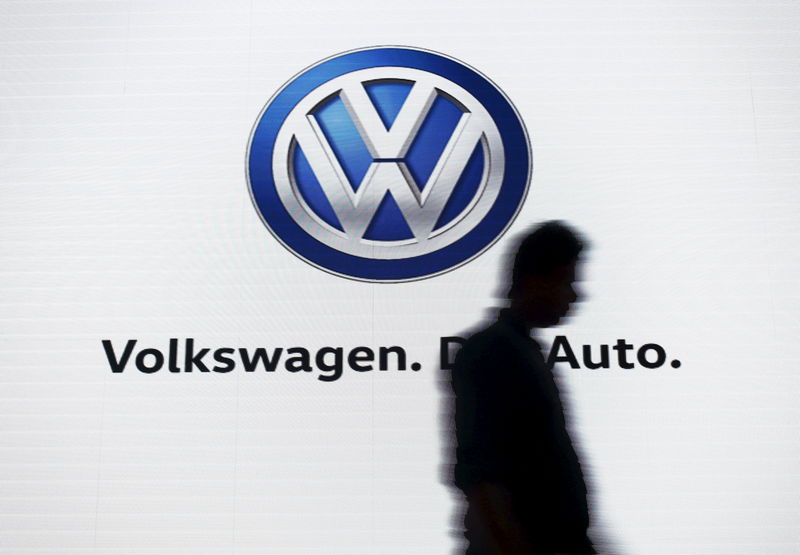Investing.com’s stocks of the week
By Andreas Cremer and Edward Taylor
BERLIN/FRANKFURT (Reuters) - When Herbert Diess takes over on Wednesday as head of Volkswagen's (DE:VOWG_p) namesake car brand, he will inherit one of the group's biggest problems: how to slash costs at the sprawling Wolfsburg complex.
Diess summarized his views on Wolfsburg in a scathing internal report, telling superiors the plant's workforce of 50,000 is bloated with staff whose services are no longer needed but who haven't been fired, a BMW source said.
The report was used by former VW Chairman Ferdinand Piech in his attack on the company's Chief Executive Martin Winterkorn this spring, the source added.
Now Piech, who recruited Diess from rival BMW (DE:BMWG), is gone. Diess's future depends on whether he can deliver on Winterkorn's plan to slash 5 billion euros ($5.6 billion) a year in costs from VW brand operations by 2017, overcoming a long history of resistance by its German unions and political leaders to significant job cuts.
"There is a certain tenseness among staff and managers ahead of Diess' arrival," a VW manager said. "Things are bound to get difficult."
VW and Diess both declined comment.
The carmaker has called the 56-year-old Bavarian "the ideal candidate" to revive the VW brand, which lags rivals Toyota (T:7203), General Motors (N:GM) and Ford (N:F) on profitability.
But Diess, whose austerity measures helped BMW keep to 2012 profit targets even as the debt crisis sapped luxury car demand, will be closely watched by labor.
Europe's largest carmaker has long faced calls to trim fixed costs and raise production efficiency in high-wage Germany, where nearly half its 593,000 employees work. Toyota builds slightly more cars with only 340,000 workers.
The VW namesake brand, control of which Diess inherits from Winterkorn, last year generated half the group's 202 billion euros of sales but added only a fifth to earnings, reflecting high labor outlays and costly in-house production of engines, transmissions and other components.
PRODUCTION SAVINGS
Instead of issuing blanket cost-cut calls which enrage VW's unions, Diess, who has a doctorate in production technology, may work with suppliers to change their methods, a BMW executive said. "If Diess told a supplier to cut prices by 10 percent, he could also explain to the supplier how to make it 10 percent cheaper in production."
VW's unions have foiled cost cutting plans in the past.
Former VW brand chief Wolfgang Bernhard, now at Daimler (DE:DAIGn), and former VW CEO Bernd Pischetsrieder were both effectively ousted after clashing with labor bosses over cost plans. And union influence has grown since Winterkorn relied on labor to fend off Piech's challenge.
"One will try to bias him (Diess) toward our case," a labor source said.
Diess, who spent eight years on BMW's executive board, joins VW with high ambitions. A source said last December he only accepted VW's offer after being passed over for the job of BMW CEO.
Yet any hopes of becoming VW CEO will depend on whether he can secure backing from executives and unions who occupy half the 20 supervisory board seats.
"That's a balancing act," said Stefan Bratzel, head of the Center of Automotive Management think-tank near Cologne. "If Diess manages to revive the core brand he will be a candidate for CEO."
Some of the problems at the VW brand hark back to its centralized leadership culture, with Piech and Winterkorn seeking control over almost any project such as design and quality issues.
But Piech's departure has triggered a process to devolve power and streamline the executive board to tackle underperformance in the United States and other foreign markets.
For Diess, the shakeout at VW will be visible on Wednesday when he moves into a makeshift office opposite the 13-storey building that normally houses VW executives but is being redeveloped.
Any manager may find it more difficult having to work his way into a new employer if it is undergoing structural change.
"Diess is keeping his house in Munich," the BMW executive said. "It's pretty obvious why this is a smart move."
